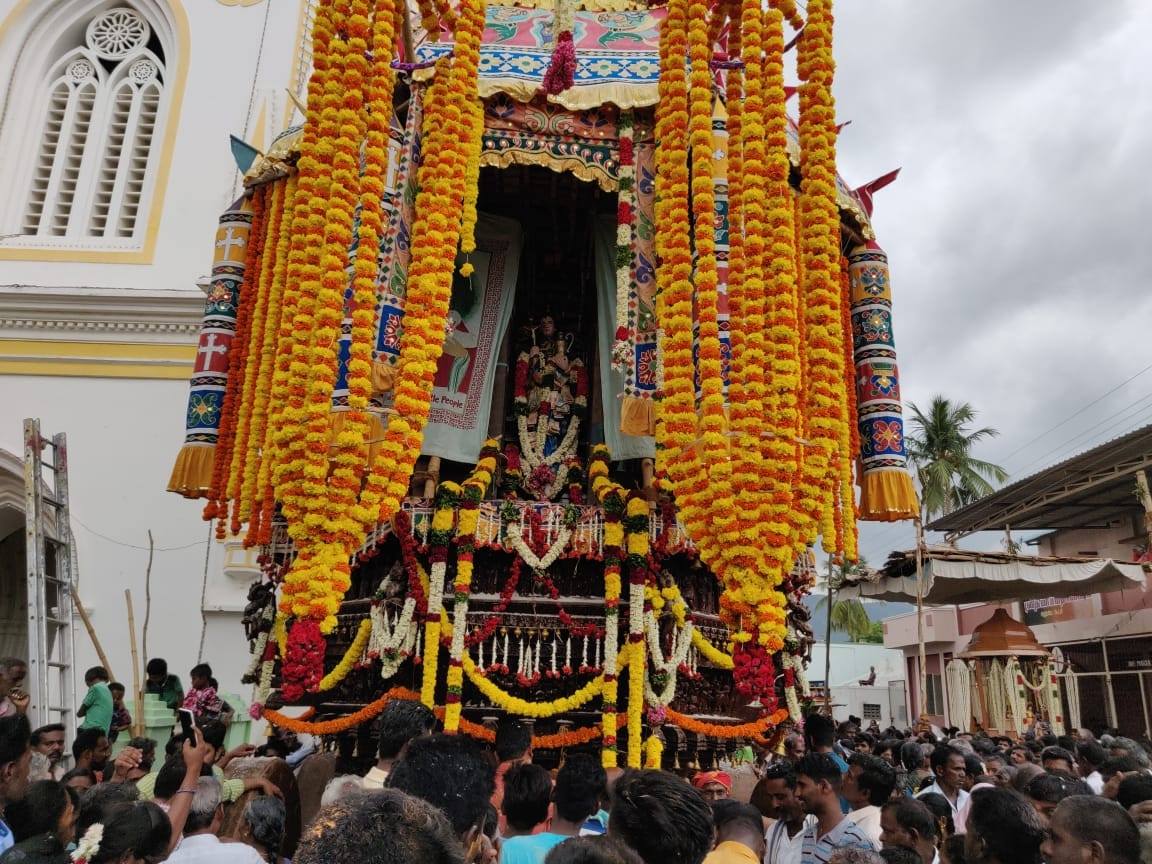Bishop refuses to attend procession on the feast of St Magdalene after Dalits are discriminated
In Trichy, Tamil Nadu, “outcastes” are marginalised even during annual Catholic celebrations. Bishop Amalanathan noted that inside the Church, Dalits “participate in the choir, do the readings, prayers, collections, etc.”, but the problem lies “outside celebrations”. For him, “all should be treated equally.”
Trichy (AsiaNews) – A group of Dalit Catholics in Trichy, Tamil Nadu, staged a hunger strike near the District Collector’s Office on Monday, claiming that they were excluded from ongoing celebrations at the centuries-old Church of St Mary Magdalene in Kottapalayam due to caste-based discrimination.
The celebrations, which began on 14 July, were organised by the Diocese of Kumbakonam. In a strong act of protest, Bishop Jeevanandam Amalanathan refused to participate in the procession, citing “persisting caste discrimination in the parish.”
Dalit Christians complain that for decades they have been deprived of the right to pay parish dues and to be included in the festival's organising committee. They also claim that the festival chariots have never been brought to their streets.
“We were abused with casteist slurs and warned not to interfere,” lamented one parishioner.
“Even though there are seven chariots in the festival, not even the smallest comes to our locality,” said a protester, R Raj Nobili. “The district administration should at least ensure that happens.”
Jo Kennedy, a human rights lawyer backs the protest. “This is a violation of the equality guaranteed by the constitution,” he said. “We’ve written letters to authorities, but no one has stepped in. The Church must dismantle the caste wall from within.”
Bishop Amalanathan reiterated his decision to boycott the chariot procession, stating that upper-caste Christians refuse to grant Dalit Christians equal rights. He rejected, however, the accusation that the Church itself supports this discrimination.
“People celebrate the parochial feast every year and the celebrations and events for the parish festival inside the church is the responsibility of the parish priest,” said the bishop of Kumbakonam speaking to AsiaNews.
“Inside the Church there is no discrimination. Dalits participate in the opening and welcome greetings to the celebrants, participate in the choir, do the readings, prayers, collections, etc.
“However, concerning the outside celebrations, non-Dalits do not allow the Dalits to participate,” and “don't involve them in the administration and do not allow them to contribute to the annual collections for the festivals.”
“We told them that it is not right,” the prelate explained. “I have tried to dialogue with them separately. They seem adamant and want to continue the traditions. I told them that I do not approve. I was not willing to go for their celebrations. We will continue our dialogue process to impress upon them that all should be treated equally,” the prelate said.
“The issue has also been filed by the Dalits in the Supreme Court. We will give our response to the Court. I have said that I will stand for what is right. The Church does not stand for discrimination of any kind. All should be treated equally. However, we are not able to enforce this, as it is outside the Church.”







.png)










